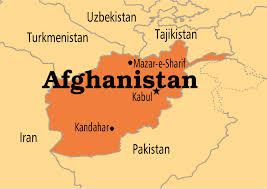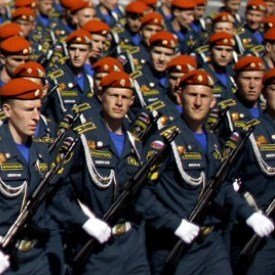RFE/RL’s Turkmen Service, Azatlyk, organized a roundtable with people who closely follow events in the region to hear their views on the situation in Central Asia and Afghanistan, now and after January 1, 2015.
Azatlyk director Muhammad Tahir moderated the discussion. He assembled Alex Cooley from Columbia University, author of “Base Politics: Democratic Change and the U.S. Military Overseas” and “Great Games, Local Rules: The New Great Power Contest in Central Asia"; Artyom Ulunyan, head of the Balkan, Caucasus and Central Asia Studies Center of the General History Institute at the Russian Academy of Sciences; Joshua Kucera, long-time writer about Central Asia and security matters for EurasiaNet (his blog “The Bug Pit” is listed there in the upper righthand corner of this page); and Professor Wazir Safi of Kabul University.
Since Azatlyk was hosting the roundtable, the first topic was the situation along the Afghan-Turkmenistan border (see this previous "Qishloq Ovozi" post) and what Afghanistan’s future means for Turkmenistan. […]
Cooley recalled that when the Taliban controlled the areas bordering Central Asia in the late 1990s, Turkmenistan’s government, alone among the Central Asian governments, had an amicable relationship with the Taliban. While noting this, he said the situation has changed. “There was just a tacit understanding…that Turkmenistan wouldn’t oppose the [Taliban] government or militarize the border in any kind of way, but that same sort of regime understanding, for whatever reason, doesn't seem to have materialized this time around.”
Cooley said that until recently “there was this type of Central Asian fatigue amongst most U.S. policy makers that the withdrawal from Afghanistan was also going to be accompanied by disengaging from Central Asia.” But he said that after the crisis in Ukraine started, “with some advocating, especially in D.C. circles, a kind of a more aggressive containment policy against Russia there may be a temptation to make a case for staying in the region as part of helping the Central Asian states have a hedge against Russia.”
See the full story © Radio Free Europe/Radio Liberty










